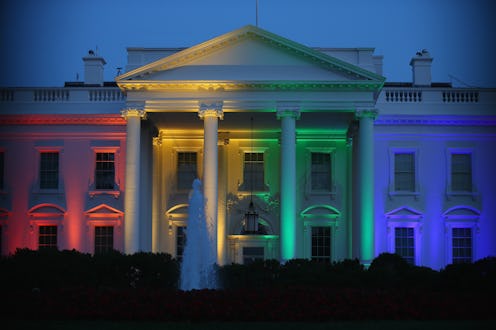News
Trump’s Impeachment Could Spell Doom For LGBTQ Rights

While controversy has marred Donald Trump's presidency from the start, recent revelations regarding the firing of FBI Director James Comey and the FBI's investigation into allegations of collusion between Russia and the Trump campaign have inspired talk of impeachment. Although the odds of Trump being impeached are difficult to predict, there are a few things that can be said with some degree of certainty about the impact of a potential Trump impeachment. For example, given Vice President Mike Pence's legislative history, it seems safe to say Trump's impeachment would spell doom for the LGBTQ community.
While Trump hasn't been able to squash talk of impeachment in Washington, the likelihood he'd actually be impeached remains relatively low. However, if — and this is a big if — Trump were to resign from office or be impeached, the order of succession outlined in the U.S. Constitution and the Presidential Succession Act of 1947 dictates that Pence, as sitting vice president, would succeed Trump.
Throughout his tenures as governor of Indiana and a member of the House of Representatives, Pence has been a staunch supporter of both socially and fiscally conservative policies. In 2000, during his first successful bid for Congress, Pence called for allocating federal funding for controversial conversion therapy programs. In fact, he proposed diverting federal funding from organizations aimed at tackling HIV/AIDS to those "which provide assistance to those seeking to change their sexual behavior." Six years later, while representing Indiana's 6th congressional district in the House, Pence came out against same-sex marriage. He argued that being gay was a choice and that preventing gay couples from being able to marry was not discrimination but rather upholding "God's idea."
A year later, he voted against the Employment Non-Discrimination Act, which would have criminalized discrimination based on sexual orientation. In 2009, he slammed former President Barack Obama's decision to sign the Matthew Shepard and James Byrd Jr. Hate Crimes bill into law as an effort "to advance a radical social agenda." In a statement to USA Today, Pence argued the hate-crimes bill could infringe upon the free speech rights of those who consider homosexuality to be a sin.
As governor of Indiana, Pence continued to support anti-LGBTQ legislation. In 2015, for example, he signed the controversial Religious Freedom Restoration Act. The law enabled Indiana businesses to cite religious beliefs as a justification for denying service to lesbian, gay, bisexual and transgender customers.
Although it's impossible to say with complete certainty what policies and legislation Pence would push through should he succeed Trump as president, we can make a few educated guesses based on the legislation he supported as both a governor and congressional representative. Given his long history of pushing anti-LGBTQ legislation, a Pence presidency would likely pose a serious threat to the country's LGBTQ community.